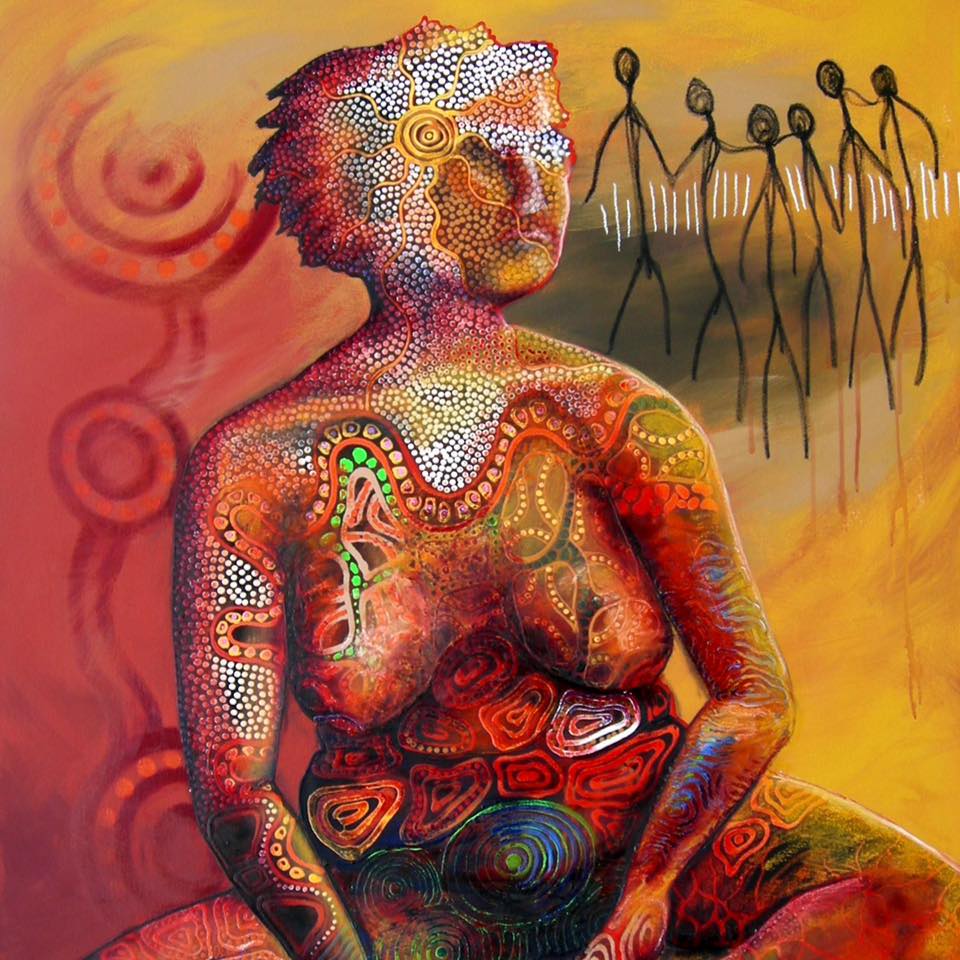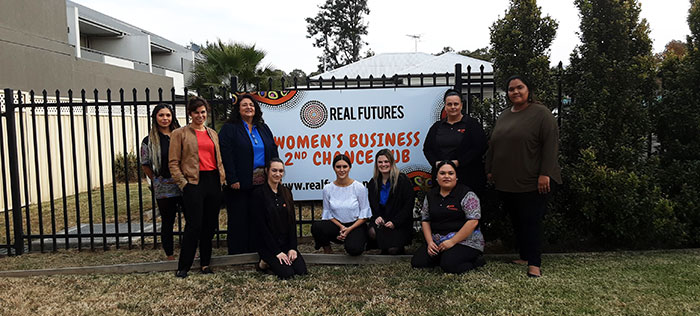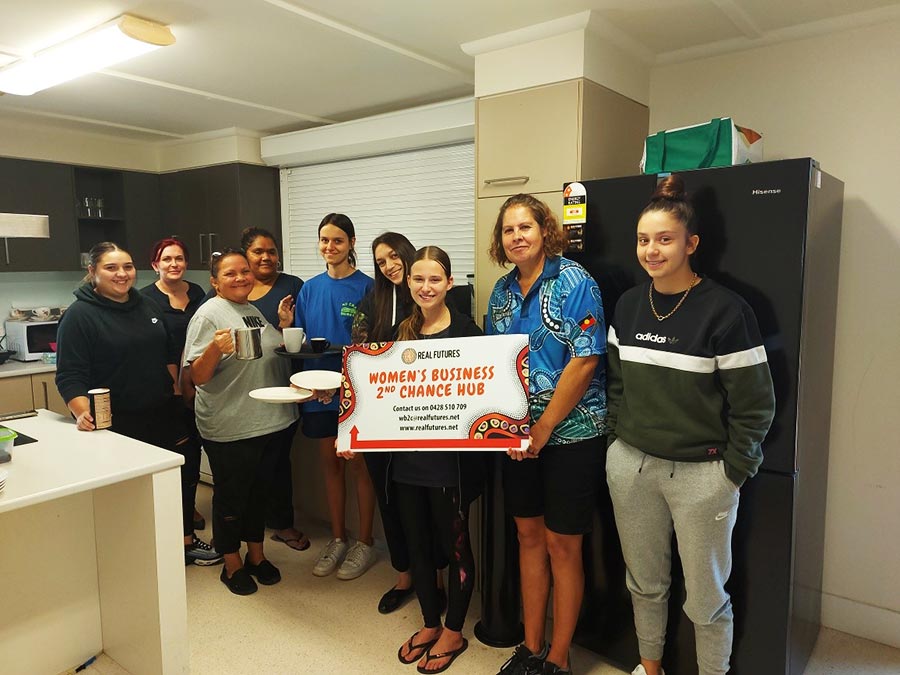
In March 2020, Real Futures partnered with UN Women to deliver the first program of its kind in a developed country. Supported by BHP Foundation as part of their global commitment to enabling access for all women to quality education, the program was piloted in Western Sydney, providing a culturally safe, women’s only space.
The Women’s Business: Second Chance hub helps in overcoming gender-based barriers to education and employment; creating scalable learning and employment pathways.

To date, 260 Indigenous women have registered for support, 48 women have been placed in employment, and 111 have completed or are undertaking training, including one woman commenced Teaching Degree at Australian Catholic University and two have submitted EOI’s for University Study (education and policing).
Established in March 2020 to empower disadvantaged Aboriginal women and give them a second chance to realise their life goals and improve their current social, economic and environmental circumstance.· The Hub is designed to offer a culturally safe place to nurture and support women’s participation in:
- Foundation life skills, pre-vocational training and associated industry and skill-building workshops
- Bridging or return to education courses and enrolment to new fields of study or licencing
- Job readiness assessment and training
- Trainee Preparatory Programs and Industry Pre-vocational programs in partnership with industry employers
- Preparation for formal interviews and onboarding requirements for employment
- Enabling access to safe and affordable childcare
- Promoting business development for entrepreneurial pursuits
The Hub undertakes vocational and non-vocational training with registered training organisations (RTOs) engaged as required, as well as pre-employment tickets and training, excursions/work experience, life skills, cultural and other workshops, mentoring support, advocacy, and social assistance.
The Hub team works with our women to achieve their life goals whether this be via culturally competent training and mentors, employment opportunities, or learning a new skill. The Hub works with community, our VTEC, other providers, organisations, partners, networks, employers, all levels of government to achieve outcomes and once in a job, hub team and VTEC continue to mentor and support our women.

Many First Nations women have been marginalised from economic and social inclusion through circumstance and stereotype and many face barriers such as housing, finance, health, transportation, caring responsibilities, literacy and numeracy, and criminal and legal barriers.
The program offers women, their families and local communities access to customised educational, employment, and support services which are tailored to their needs as learners and future earners. Our aim is to turn courage into confidence into success. Australia is one of six countries to be participating in this pilot program – which is part of UN Women’s Second Chance Education and Vocational Learning Program and proudly funded by BHP Foundation.
The programme addresses the barriers that caused the women to drop out of education in the first place; and to break down harmful social norms and barriers preventing women from pursuing meaningful employment and actively participating in society.

When asked to identify the barriers those currently registered with the hub are facing, over 70% of the Western Sydney based Indigenous women identified housing and finances as a major barrier to entering the workforce or engaging in study; most have difficulty affording rent and mortgages. Transportation is also an issue with 32% of current participants without a vehicle or driver’s licence. Another 28% identified serious health barriers – physical and mental. Finally, 22% have parenting and caring responsibilities.
“There is an urgent need to drive solutions, especially for women who have missed out on education and ensure that they are able to access decent work opportunities,” states Sarah Hendriks, Director Programme, Policy and Intergovernmental Division at UN Women in New York.
As Minister Wyatt emphasises, “Not only do Aboriginal and Torres Strait Islander women play pivotal leadership roles in their families and communities, but they are also central to the development, growth and diversity of the Australian economy.”
Educating a woman has a multiplier effect in society with benefits resonating to her family, her community and beyond. A woman is likely to invest her earnings back into her family. Additionally, an educated woman is better equipped to educate her own children and ensure they get full schooling. This contributes to improved education rates, economic growth and development in the long term.
The Second Chance Education and Vocational Learning Programme targets vulnerable women and young women who have missed out on an education. The programme leverages technology to provide women with access to learning, improves pathways to employment and entrepreneurship opportunities tailored to individual needs as learners and their future as earners. In order to achieve this, the programme will seek to address the barriers that caused the women to drop out of education in the first place; and to break down harmful social norms and barriers preventing women from pursuing meaningful employment and actively participating in society.